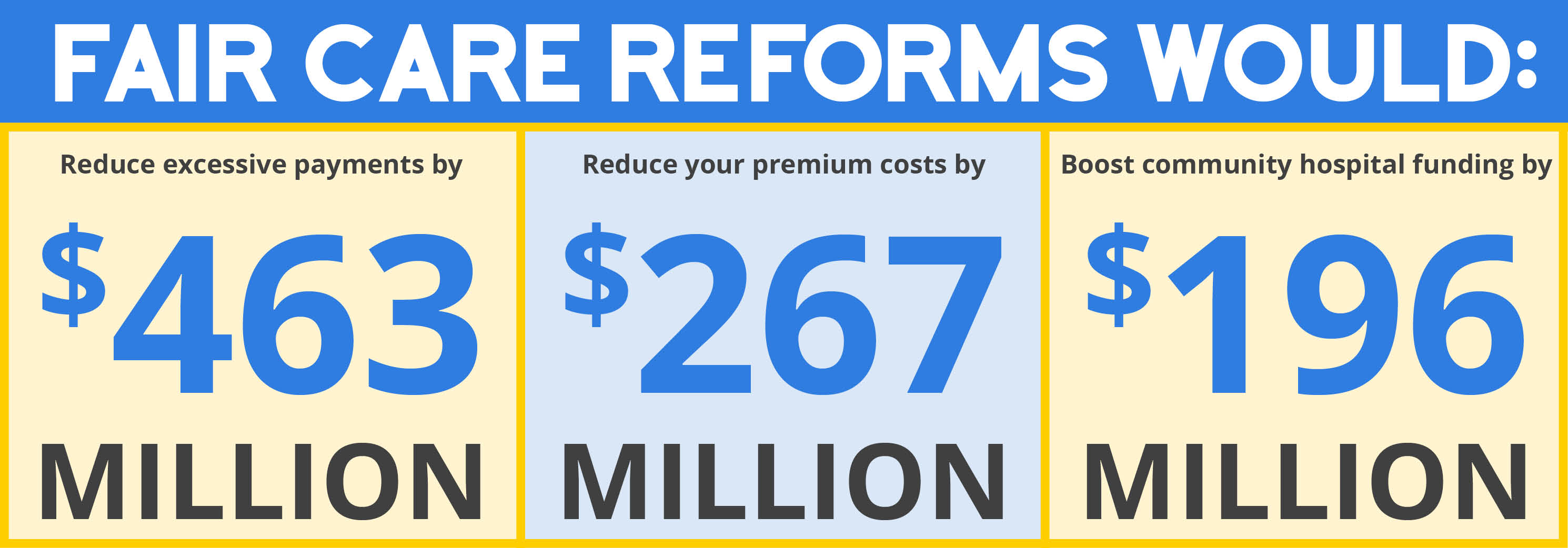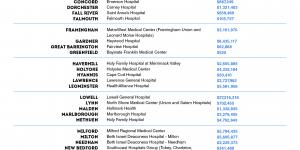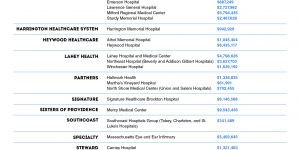It’s time to bring fairness to our local hospital industry and to reduce premiums for consumers. That’s why the Campaign for Fair Care is promoting solutions that would boost funding for jobs and services at community hospitals.
PROBLEM: Wealthy hospital systems with billions in reserves have driven up insurance premiums while draining funding from the rest of the Massachusetts healthcare system, putting many community hospitals in grave danger.
SOLUTION: Reduce the excessive insurance payments to wealthy hospitals so that community hospitals can survive and thrive by investing in fair pay for workers, staffing, and patient services.
The current hospital funding system in Massachusetts favors powerful, already wealthy hospitals in Boston. The special treatment received by those hospitals because of their market clout, comes at the expense of community hospitals and consumers. The rich are getting richer while workers and patients pay the price. As a result of this imbalanced system, some community hospitals have even gone out of business.
If nothing changes, many more could soon close, jeopardizing jobs and care in your community.
The reforms proposed by the Campaign for Fair Care would yield approximately $278 million in savings for consumers in reduced premiums and co-pays and $196 million in additional funding for Massachusetts community hospitals.
What we need to do about it.
Our proposed reforms would require that community hospitals like yours are reimbursed at fairer rates by private health insurers for services provided. They would increase the private health insurance rates for community hospitals by reining in the excessive rates paid to the largest and wealthiest hospitals in Massachusetts.
To address these price disparities, the proposed initiatives would prohibit insurance companies from paying a hospital more than 20% above the average amount paid to similar hospitals for the same service. They would also ensure that lower-paid hospitals receive rates closer to the average by requiring that they are paid at least 90% of the amount paid to similar hospitals. Additionally, net savings from the law will reduce health insurance premiums for consumers.
When community hospitals provide comparable services and quality, they should be paid fairly. When wealthy hospitals are paid up to 300% more by insurers for the same services, they drain revenue from community hospitals and drive up insurance premiums for everyone.
Those high prices create a vicious cycle that put local jobs and services at risk.
Meanwhile, healthcare workers and advocates are collecting signatures across the state to put similar measures on the ballot in 2016. Together we can strengthen our local community hospitals and reduce premium costs.
How much will your local hospital gain?
*Disproportionate share hospitals provide care for a higher percentage of medicaid and medicare patients.
**Geographically isolated and specialty hospitals are exempted from the 120% rate cap and will see no negative impact. If commercial insurance rates are already above the 90% rate floor, that facility will not receive rate increases, but may otherwise benefit from the rate floor.



